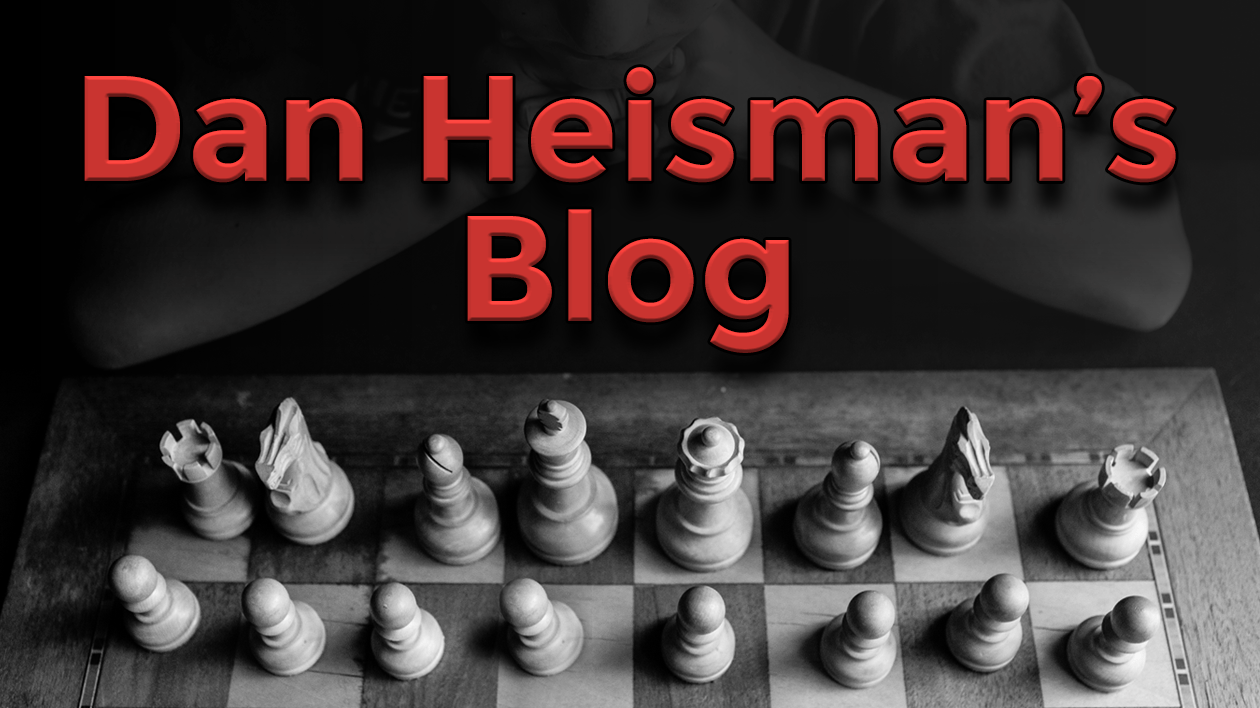
Chess Skills are not Have and Have Not
A student often says to me something like "Kasparov and Fischer have it - I don't" - referring to chess talent. It's as if they perceive that chess talent is a single thing and it's measured in 1 or 0.
But that's not the way it works. Chess talent is not one thing - it is many, many things such as visualization, determination, persevance, the ability to learn from your losses, deductive logic, memory, stamina, board vision, and many others. And, in most cases (things like stamina and memory are exceptions), these abilities start near zero but can rise well above your current level.
So for a better model let's use 0-100 instead of 0-1 to get both more granularity and a more accurate picture. Let's suppose in some talents a Fischer or Kasparov achieved a 98. However, if you measured them during the first minutes they learned to play, their ability was close to 0 - they had the talent but it had to be developed. Nobody has board vision, criticality assessment, tactical vision, or visualization til they play a little bit. In the case of the Polgar sisters, where chess was learned like a second language, they may have started at zero but at a very early age they got moving toward their possible maximums.
Now take a typical adult who never played chess super seriously when he/she was young, but now wishes to improve. Like everyone, his skills began at 0 and likely he never had the talent in a particular skill to get anywhere near 98 but, if he started early enough and was devoted enough, let's suppose he could have gotten to 73. However, right now he is stuck on 15.
Likely he thinks that working on that "15" skill is worthless and he's no good. And it's true he can no longer achieve 73, not even if he quits his job, forsakes his kids, and goes full-time in chess (don't do it!  ). But that doesn't mean he is stuck on 15 forever if he works at that (or any similar) skill. If he starts doing the right kind of practice and exercises, he can make his visualization, tactical vision, time management, or criticality assessment much better - maybe he can get to 37 or even 52. But it all starts with rolling up the sleeves, taking up a positive attitude, and doing some good, appropriate work.
). But that doesn't mean he is stuck on 15 forever if he works at that (or any similar) skill. If he starts doing the right kind of practice and exercises, he can make his visualization, tactical vision, time management, or criticality assessment much better - maybe he can get to 37 or even 52. But it all starts with rolling up the sleeves, taking up a positive attitude, and doing some good, appropriate work.
For example, I always had a strong willingness to learn from my losses, but I took action by doing things like looking up most of my speed game openings in MCO-10 or going over every slow game I could with my opponents. I would pick their brain: "What would have done if I had played 17.b4?" or "Why did you lose a pawn on move 20 - did you see that I could just get a discovered attack when I took your knight?" One major way I improved my visualization was by playing many long time control games slowly, often taking 10 minutes or more on one move while I carefully moved the pieces in my head over and over, checking and re-checking.
You may never become an expert or a master but, if you just study openings and never learn how to analyze well or evaluate properly, then the skills that go into making those key "combined skills" will languish and your 15 will become a self-fulfilling promise. Develop those skills way up above 15 and watch the composite measure of your skills, your rating (which measures your overall playing strength), improve commeasurately.
I know you can do it - if you think you can't, then you will be right...